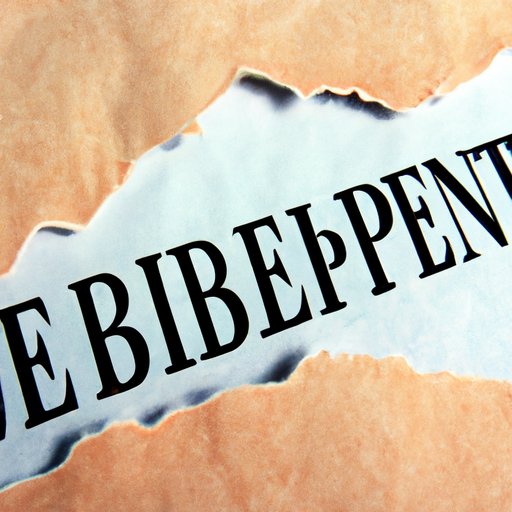
How Long Do You Have to Work to Collect Unemployment?
Losing a job can be an overwhelming and stressful experience, but it helps to know that there are resources available to help you through it. In the United States, one of those resources is unemployment benefits. These benefits are designed to provide financial assistance to workers who lose their jobs through no fault of their own and are actively seeking new employment. In this article, we’ll explore how long you have to work to collect unemployment, as well as the state-by-state variation, funding, and strategies for finding work.
Explaining the Basics of Unemployment Benefits
Unemployment benefits are administered at the state level, so specific eligibility requirements and benefits vary depending on where you live. However, there are general guidelines that apply across the country.
To be eligible for unemployment benefits, you typically need to have been employed for a certain period of time within the past year or so. The exact length of time required varies by state, but you generally need to have worked for at least six months to a year.
The amount of benefits you receive is also determined by the state where you live and how much you earned while working. Benefits usually last for a certain period of time (usually up to 26 weeks) and are designed to provide temporary assistance while you look for new employment.
State-by-State Variation
Each state has its own eligibility requirements and benefit amounts. For example, some states have a “waiting week” before benefits can be paid out, while others do not. States also have different regulations for how much you need to have earned to be eligible for benefits and how long benefits last.
To find out about the regulations in your state, your best bet is to check your state’s Department of Labor website. Alternatively, you can contact them by phone or visit a local unemployment office.
Job Loss and Unemployment
Losing a job can be a challenging experience, both emotionally and financially. Good communication with your family and seeking professional help are recommended to help you cope during this time. When looking for a new job, take stock of your transferable skills and consider options that may not be in your usual field. Having a well-written resume that emphasizes your skills and shows how you can be an asset to your desired company is a great start.
Understanding the rules around unemployment benefits can help make the financial aspect of job loss a little more manageable. For example, knowing how long you have to work to collect unemployment can help you plan your finances if you’re worried about losing your job.
How Unemployment Benefits Are Funded
Unemployment benefits are funded through a combination of federal and state taxes. Employers pay into the system, and employees may also contribute in some states. The amount of tax paid by employers is determined by a formula that considers their industry, how many employees they have, and how many of those employees have made claims for unemployment benefits in the past.
Political and economic factors can impact the funding of unemployment benefits as well. For example, during a recession, there may be more job losses, leading to more claims for benefits. This can put a strain on the system and may result in changes to eligibility requirements or benefit amounts.
Strategies for Finding Work
If you’ve lost your job and are collecting unemployment benefits, it’s important to start looking for new work as soon as possible. There are a number of strategies you can use to make your job search more effective:
- Polish your resume and cover letter to make sure they’re up-to-date and tailored to the positions you’re applying for.
- Use job search sites such as Indeed, LinkedIn, ZipRecruiter, or CareerBuilder to look for open positions in your field.
- Attend networking events or join groups related to your industry to meet people and learn about new job opportunities.
Conclusion
Losing a job can be a difficult experience, but unemployment benefits can provide some financial assistance while you search for new work. It’s important to understand how the system works in your state and to take advantage of the resources available to you. By being proactive in your job search and using the tips outlined in this article, you can increase your chances of finding new employment and moving forward with your career.




